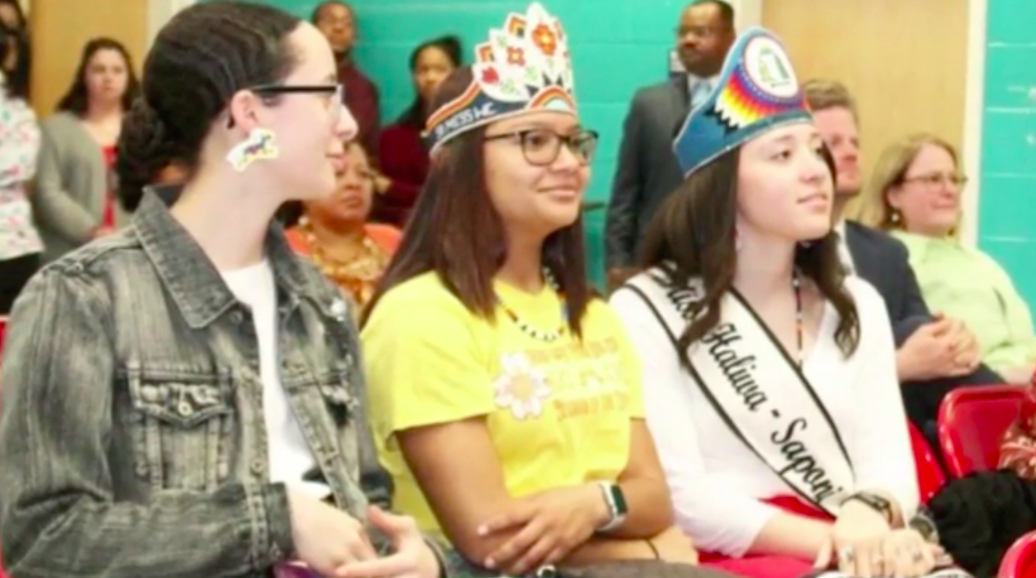Indigenous students in North Carolina are disheartened after their request to wear tribal feathers on their high school graduation caps were denied.
Zianne Richardson and Taylor Williams are high school seniors in Warren County. WRAL reports that in January, the two members of the Haliwa-Saponi Indian tribe, sought permission from the school board to each wear cultural symbols to the ceremony in honor of their heritage.
After months of deliberation, the committee denied their petition.
Ray Spain, the Warren County School Superintendent, told reporters they denied the motion because they didn't "want to be offensive, judging who can do what.” They reportedly feared that it would set a precedent that “would open it up to practically anything students wanted.”
Richardson explained to the publication that their desire was to pay tribute to their traditions. They did not seek to stand out from the rest of their peers whom she says have all known each other since middle school. She added that they all of the students support one another's individuality.
“Maybe the board didn't really understand what we were trying to say," she continued, "because they referred to our items as decorations, and they are not decorations. They are items of religious and cultural importance to us."
The 17-year-old shared that Indigenous people have the lowest overall high school graduation rate in the country and Education World reports over 30% drop out before the celebrational event. "Whenever one of us graduates, it's sort of an accomplishment for the whole Native community all over the United States," she said.
The high school student's accomplishment goes far beyond being an academic inspiration. Journal-News reports the model student received the fourth Morehead-Cain Scholarship to be awarded in Warren County. The four-year merit scholarship is a full-ride to the University of North Carolina at Chapel Hill where she will be studying as an undergraduate later this year.
She dreamed of wearing tribal beads with her eagle feather alongside her tassel, which she earned last year in a coming-of-age ceremony.
"It represented me crossing over to another stage of my life and that's what a graduation is," she stated. “It's culture for us because we were born into the traditions, we've learned these traditions since birth, so this is all we know."
An appeal was submitted by the tribal council of the Haliwa-Saponi in hopes that the board's initial decision will be overturned.
Richardson says she and Williams will respect the board's conclusion and will not wear the tribal decorum should the original conclusion remain. However, she intends to advocate for future Native students to have the opportunity to do so soon.
Now, check these out:
South Africans Turning Up And Showing Out At Their College Graduation Are Taking Over The Internet
'The Hair Appointment' Is The Dope Art Exhibit Showing Off Braided Black Girl Magic
Georgia Teenager Found Dead In Jail Notorious For Its 'Torturous' Living Conditions
